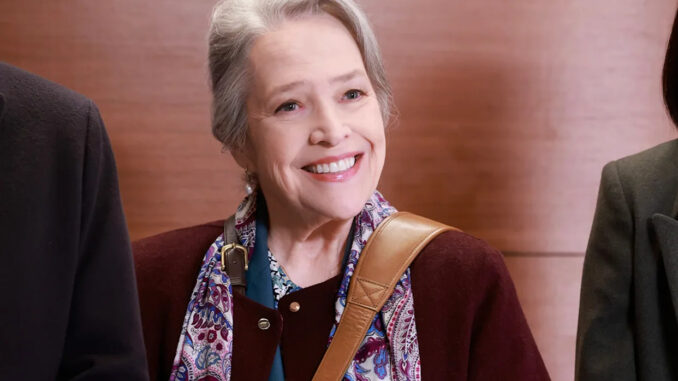
When Silly Sounds Serious: Finding Redemption in “The Best Friend”
Matlock, with its slow-burn pacing, folksy charm, and courtroom theatrics, wasn’t always known for groundbreaking narratives. Sometimes, you tuned in for the familiar comfort, the legal puzzles that, while intricate, always felt solvable by the good ol’ fashioned wisdom of a Georgia lawyer armed with a rumpled suit and a hot dog. But Season 2, Episode 6, “The Best Friend,” initially sounded like a step too far into the realm of preposterousness, a tale so saccharine and unbelievable it threatened to unravel the show’s carefully constructed reality. And yet, beneath the surface of a story that sounded silly, lay a potent exploration of loyalty, manipulation, and the devastating consequences of unchecked ambition.
The plot, at first glance, bordered on farce. Matlock defends his client, Ben, a seemingly simple-minded man accused of murdering his wealthy, conniving business partner, Arthur. Ben, who is genuinely devoted to Arthur, claims he wouldn’t hurt a fly, much less his best friend. The “silly” part? Arthur, before his death, had seemingly rewritten his will, leaving his entire fortune to Ben, a twist so cliché it felt ripped from a pulp novel. This immediately paints Ben as the prime suspect, his innocent demeanor only serving to amplify the suspicion.
The brilliance of the episode, however, lies in its skillful unveiling of the layers of deception and manipulation that underpinned the seemingly simple friendship. As Matlock meticulously picks apart the prosecution’s case, he uncovers a web of secrets surrounding Arthur’s life. We learn that Arthur wasn’t the benevolent benefactor he appeared to be; he was a ruthless businessman who manipulated people for his own gain. He had used Ben’s naivety and loyalty as tools, grooming him into the perfect patsy should anything go wrong.
This is where the “silly” premise transforms into a surprisingly serious commentary on the destructive power of unchecked ambition. Arthur saw Ben not as a friend, but as a pawn in his elaborate game of financial dominance. The rewritten will, initially perceived as a flimsy plot device, becomes a symbol of Arthur’s ultimate manipulation, a posthumous trick designed to deflect suspicion and secure his legacy, even if it meant sacrificing Ben’s life.
The episode also delves into the complexities of loyalty and the dangers of blind faith. Ben, despite his genuine affection for Arthur, was ultimately blinded by his devotion. He failed to recognize the signs of Arthur’s exploitative behavior, clinging to the illusion of a true friendship even as he was being used and manipulated. This underscores a poignant truth: even the purest of intentions can be exploited, and loyalty, when devoid of critical thinking, can lead to devastating consequences.
Furthermore, the episode showcases Matlock’s particular skill in understanding the human psyche. He recognizes that Ben’s seemingly simple-minded nature isn’t stupidity, but rather a genuine innocence that Arthur cruelly exploited. Matlock’s unwavering belief in Ben’s innocence, coupled with his relentless pursuit of the truth, ultimately exposes the intricate web of deceit and reveals the true killer: a disgruntled employee seeking revenge on Arthur for ruining his life.
In conclusion, “The Best Friend” initially presented itself as a lightweight, even silly, episode of Matlock. But beneath the surface of its seemingly contrived plot lay a surprisingly nuanced exploration of complex themes. It exposed the corrosive effects of unchecked ambition, the dangers of blind loyalty, and the enduring power of truth and justice. It proved that even a story that sounds ludicrous can, with skillful storytelling, offer a profound and insightful commentary on the darker aspects of human nature. The episode, ultimately, demonstrated that even Matlock, a show known for its predictable comfort, could surprise and engage with a story that, while sounding silly, was anything but. It’s a testament to the show’s ability to transform the seemingly ridiculous into the remarkably real, proving that sometimes, the most profound truths are hidden beneath the most unlikely of facades.
